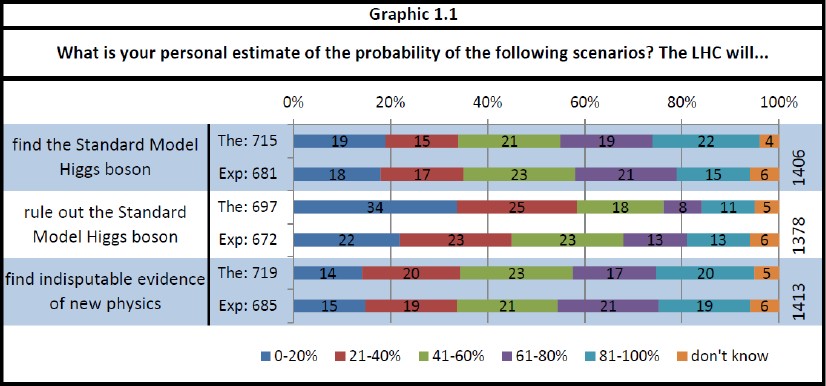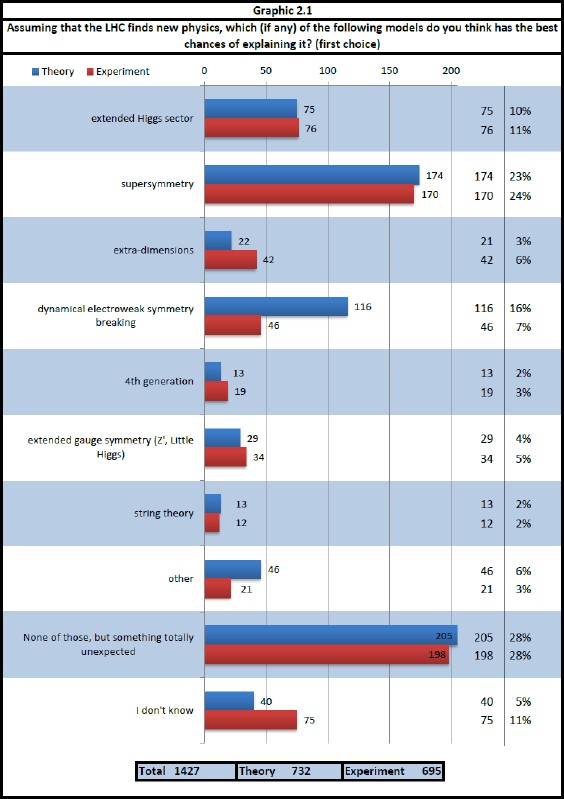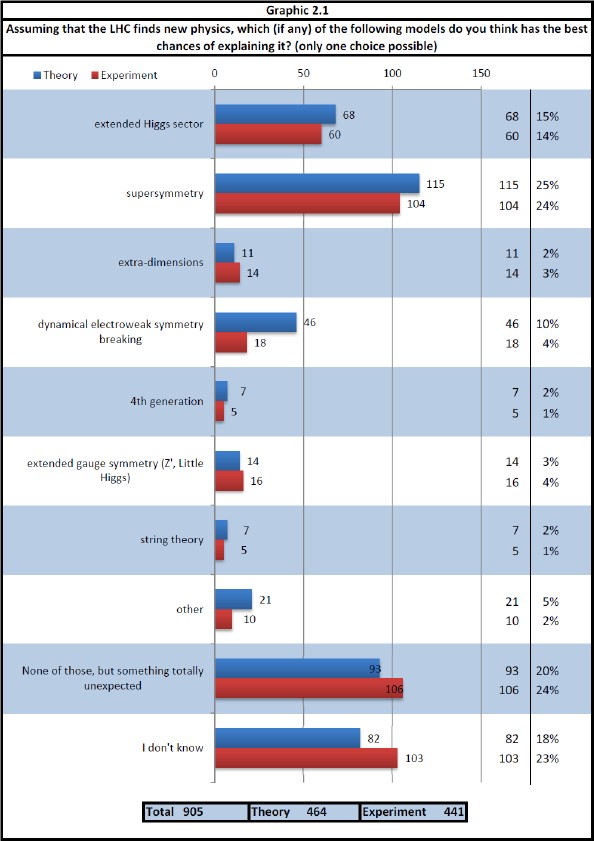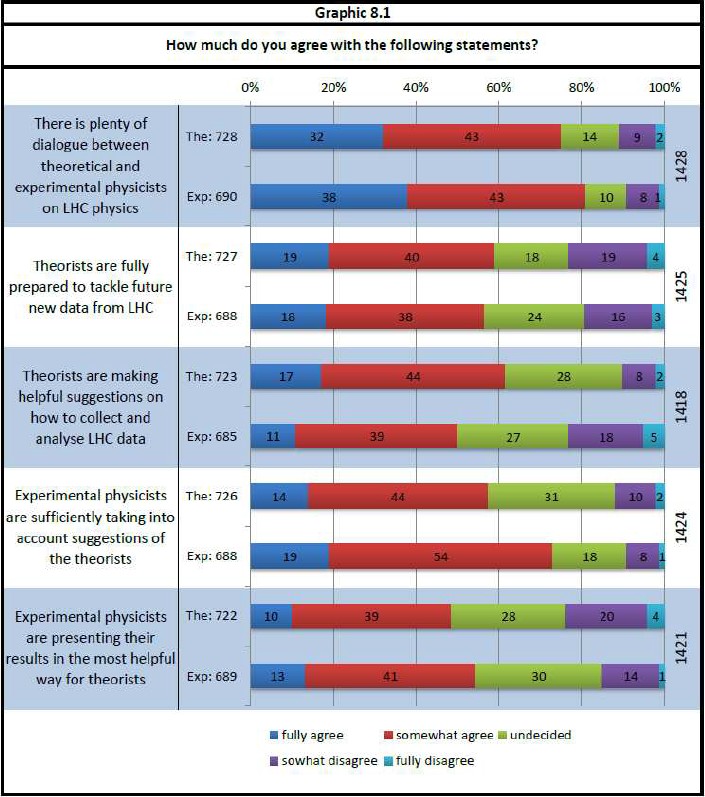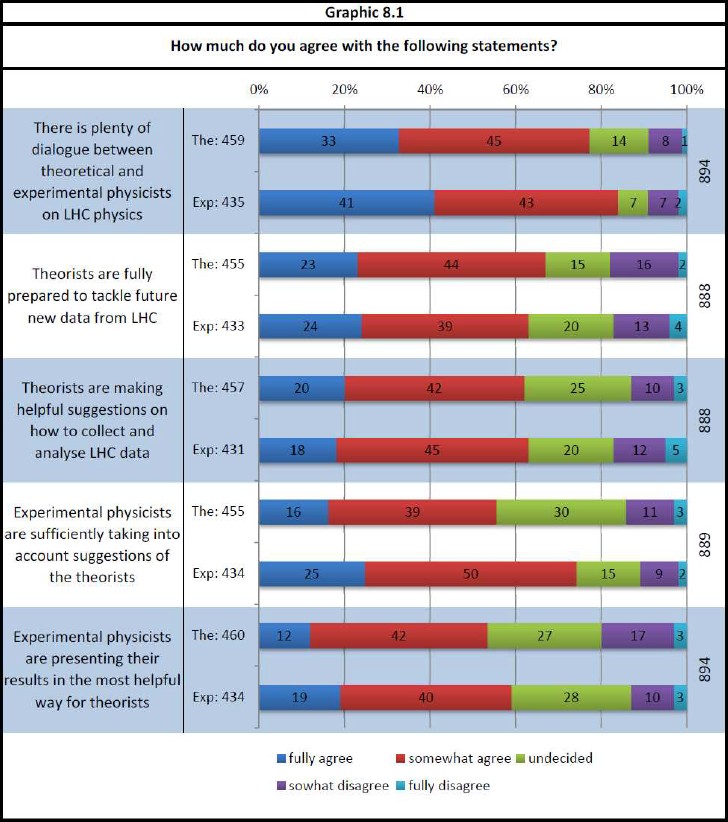An empirical study of knowledge production at the LHC
A philosophical experiment
In 2008 a group of high-energy physicists, philosophers and historians of science decided to join forces to take a closer and critical look at the knowledge production which would accompany the first phase of operation of the LHC. In 2010, thanks to the support of the German Research foundation (DFG), the interdisciplinary project-cluster ‘Epistemology of the LHC’ (http://www.lhc-epistemologie.uni-wuppertal.de/) started working at the University of Wuppertal (Germany), and in this colloquium some results from one of its project were presented. The project focussed on the evolution of models of “new physics” in the period 2010-2012, asking: How does the present model landscape look like? How does it develop in time (if at all)? Do physicists in some sense "prefer" one model to the other?
In the philosophical literature a number of criteria are often quoted as possible reference points for scientists when discriminating between models (Frank 1954, Kuhn 1977, van Fraasen 1980) and these can be roughly subdivided into practical (empirical adequacy, explanatory portential) and aesthetic ones (simplicity, mathematical symmetry, potential for unification). At the same time, other authors have suggested that theory choice may be often linked to personal skills and to the extent to which a theory, if true, may open up new venues of research (“opportunism in context”, Pickering 1984). In the 1990s Karin Knorr-Cetina has investigated the processes of decision-making in the UA2 and ATLAS collaborations and has argued that no punctual decision ever obtain, but that consensus is reached through a continuous process of sharing and summarizing of information at the end of which a decision emerges which is perceived as a collective choice (Knorr-Cetina 1999). All of these views will be confronted with the results of our investigation.
Information for our empirical study was gathered by (1) classifying research preprints submitted to the platform arxiv.org (hep-ph, hep-th, hep-exp) from February 2010 onward (for feasibility, only papers dealing with alternative mechanisms of mass generation were considered) (2) interviewing a small number of practising HE-physicists and (3) performing online surveys among HE-physicists. Both the interviews and the surveys were performed before and after the discovery of the Higgs boson was announced on July 4th 2012. Following the most popular models in philosophy of science, working hypothesis at the start of the investigation was that HE-physicists, especially theorists, would be divided in many larger or smaller communities supporting a specific BSM-model (or model class) and presenting arguments in its favour and against other models. However, the analysis of research preprints soon showed that almost no disputes of this kind took place and that the same arguments could be used in support of different models (naturalness, dark matter candidate, unification...). Moreover, most model-builders were seen to work on different kinds of models at the same time, without necessarily committing to one of them. The bibliometric study did not reveal any significant changes in the model landscape which might be linked to LHC results.
In the first run of interviews (March/April 2011) theorists and experimentalists were asked about their preferences among models, and here, too, a general picture of rather low commitment emerged. Experimentalists even seemed to regard the simple fact of considering a model more likely to be successful as a potential bias on their work, a fact rather surprising from a philosophical point of view, since decisions are made in LHC experiments on which models to test, and there is no reason why these choices should amount to a bias. Theorists openly expressed personal preferences, but had mostly no strong commitment and their preferences did not necessarily match the subjects they worked on. For example, almost all spoke of the “beauty” of supersymmetry, but only a few were working on it or regarded it as more likely to successfully predict LHC results.
The two runs of the online-survey confirmed how little commitment HE-physicists have in the BSM-models at present on the marked. In September 2011, when asked which BSM-model from a given list would seem to them to have better chances of explaining new physics eventually seen at the LHC, the relative majority of theorists and experimenters (28% in both cases) choose the option that a “totally unexpected” kind of physics would turn up. In September 2011, physicists also estimated the probability of finding a SM Higgs as almost equal to that of finding new physics, with an average estimate around 50%. However, in September 2012 the situation had changed, with physicists now regarding supersymmetry as the best bet for explaining new physics (albeit only slightly above the “unexpected”), while the number of scientists who now answered the question with “I don't know” had suddenly gone up. Thus, LHC results seem to have put the high-energy community in a state of uncertainty, a situation from which supersymmetry and other less speculative models (e.g. additional Higgs doublets) seem to have slightly profited. Finally, what clearly improved during one year, was the cooperation between theorists and experimentalists.
The results of our investigation suggest that traditional philosophical models in which scientists choose among rival theories on the grounds of specific criteria do not fit the situation in HEP, where a large number of models remain on the market despite lack of empirical evidence in their favour, while only a minority of researchers appear to have a strong committment for or against one or the other of them. On the other hand, the pointedly agnostic stance of experimentalists fits well the previous results of Knorr-Cetina. As far as theorists are concerned, the role of personal skills seems to be a major factor in the choice of models to work on. However, all these conclusions are to be regarded as provisional and are subjected to be revised depending on oncoming experimental results on the Higgs boson, which may radically reshape the model landscape. Finally, a very interesting results of our study was to highlight the problematic aspects of and improvement in the dialogue between theorists and experimentalists and this issue may constitute the focus of further research, possibly employing the notion of “trading zones” between different subcultures of microphysics as developed by Galison (1997).
Read more:
P. Frank, The Variety of Reasons for the Acceptance of Scientific Theories, in P. Frank (ed.), The Validation of Scientific Theories (Boston1954) 3-18.
P . Galison, Image and logic: a material culture of microphysics (Chicago 1997)
K. Knorr-Cetina, Epistemic cultures. How sciences make knowledge (Cambridge MA 1999)
T. Kuhn, Thomas, Objectivity, Value Judgment, and Theory Choice, in T. Kuhn, The essential tension. Selected studies in scientific tradition and change (Chicago 1977) 320-39.
A. Pickering, Constructing quarks: a sociological history of particle physics (Chicago: 1984)
B. van Fraassen, The Scientific Image. (Oxford 1980)
Watch the full video of the lecture here
Short CV:
Arianna Borrelli (www.weatherglass.eu) is a historian and philosopher of natural philosophy and modern science currently working at the University of Wuppertal (Germany) within the interdisciplinary DFG-funded project-cluster “Epistemology of the LHC”. Born in Rome, she has held research positions in various fields and countries: theoretical high energy physics in Italy, England and Switzerland (1989-1994), history and philosophy of science at the Technical University of Braunschweig (2002- 2004), the Max-Planck-Institute for the History of Science (Berlin, 2005-2007) and the Fritz- Haber-Institute of the Max-Planck-Society (Berlin, 2007-2010). Her fields of interest in the history and philosophy of science include medieval mathematical cosmology, early modern meteorology and mechanics, and quantum theories from their early days up to the present.
